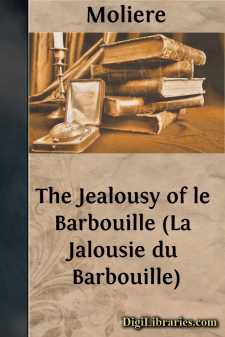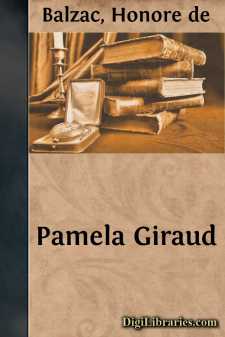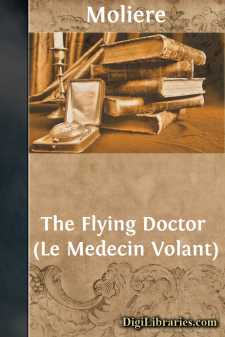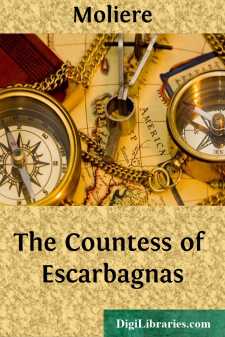Drama
- American 43
- Ancient, Classical & Medieval 45
- Asian 7
- Caribbean & Latin American 2
- Continental European
- English, Irish, Scottish, Welsh 91
- General 105
- Middle Eastern 1
- Religious & Liturgical 1
- Shakespeare 1
Continental European Books
Sort by:
The Story Of The Love Of Alcestis. Asclepius, the son of Apollo, being a mighty physician, raised men from the dead. But Zeus was wroth that a man should have such power, and so make of no effect the ordinance of the Gods. Wherefore he smote Asclepius with a thunderbolt and slew him. And when Apollo knew this, he slew the Cyclopés that had made the thunderbolts for his father Zeus, for men say that...
more...
by:
Alexander Dyce
THE TRAGICAL HISTORY OF DOCTOR FAUSTUS FROM THE QUARTO OF 1616. Enter CHORUS. CHORUS. Not marching in the fields of Thrasymene,Where Mars did mate the warlike Carthagens;Nor sporting in the dalliance of love,In courts of kings where state is overturn'd;Nor in the pomp of proud audacious deeds,Intends our Muse to vaunt her heavenly verse:Only this, gentles,—we must now performThe form of...
more...
by:
Edwin Bjorkman
INTRODUCTION Hermann Bahr, the noted playwright and critic, tried one day to explain the spirit of certain Viennese architecture to a German friend, who persisted in saying: "Yes, yes, but always there remains something that I find curiously foreign." At that moment an old-fashioned Spanish state carriage was coming along the street, probably on its way to or from the imperial palace. The...
more...
ACT I.SCENE I.A Saloon in FIESCO'S House. The distant sound of dancing andmusic is heard. LEONORA, masked, and attended by ROSA and ARABELLA, enters hastily. LEONORA (tears off her mask). No more! Not another word! 'Tis as clear as day! (Throwing herself in a chair.) This quite overcomes me—— ARABELLA. My lady! LEONORA (rising.) What, before my eyes! with a notorious coquette! In presence...
more...
by:
Moliere
SCENE I.——LE BARBOUILLÉ. Bar. Everybody must acknowledge that I am the most unfortunate of men! I have a wife who plagues me to death; and who, instead of bringing me comfort and doing things as I like them to be done, makes me swear at her twenty times a day. Instead of keeping at home, she likes gadding about, eating good dinners, and passing her time with people of I don't know what...
more...
by:
Honore de Balzac
ACT I SCENE FIRST (Setting is an attic and workshop of an artificial flower-maker. It ispoorly lighted by means of a candle placed on the work-table. Theceiling slopes abruptly at the back allowing space to conceal a man.On the right is a door, on the left a fireplace. Pamela is discoveredat work, and Joseph Binet is seated near her.) Pamela, Joseph Binet and later Jules Rousseau. PamelaMonsieur Joseph...
more...
by:
Moliere
SCENE I.——VALÈRE, SABINE. Val. Well, Sabine, what do you advise me to do? Sab. I have really much to tell you. My uncle is bent upon marrying my cousin to Villebrequin, and things have gone so far, that I believe the wedding would have taken place to-day if you were not loved by her. However, as my cousin told me the secret of all the love she feels for you, and as we were almost driven to...
more...
by:
Eugene Brieux
PREFACE We are confronted at the present time by the woman who is anxious to lay by means for her own support irrespective of the protection of her husband. In this play I have indicated the tendency of this difficulty and the consequent troubles which the older civilizations will bring upon themselves when the woman's standing as a worker is generally acknowledged. My conclusion, namely, that all...
more...
by:
Moliere
SCENE I.—JULIA, THE VISCOUNT. Visc. What! you are here already? Ju. Yes, and you ought to be ashamed of yourself, Cléante; it is not right for a lover to be the last to come to the rendezvous. Visc. I should have been here long ago if there were no importunate people in the world. I was stopped on my way by an old bore of rank, who asked me news of the court, merely to be able himself to detail to...
more...
by:
Thomas Constable
INTRODUCTORY NOTE Pierre Corneille was born in Rouen in 1606, the son of an official; was educated by the Jesuits, and practised unsuccessfully as a lawyer. His dramatic career began with the comedy of "Melite," but it was by his "Medee" that he first proved his tragic genius. "The Cid" appeared in 1636, and a series of masterpieces followed—"Horace," "Cinna,"...
more...











